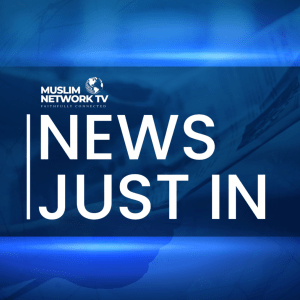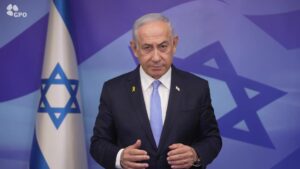Global outcry over indiscriminate pager explosions in Lebanon
The incident has also sparked renewed debate over international double standards in addressing terrorism and violence in the Middle East.
Muslim Network TV
BEIRUT, Lebanon (MNTV) – A wave of international outrage is sweeping across the globe after a series of deadly pager explosions in Lebanon resulted in the tragic deaths of 12 people, including a 10-year-old girl, and left more than 2,750 others injured.
The shocking incident, which has sent ripples of fear and anger through the international community, is believed to have been linked to pagers allegedly used by Hezbollah members.
While investigations are still ongoing, accusations and condemnations are mounting, with global leaders and human rights organizations expressing grave concerns over the growing instability in the region.
The deadly explosions, which occurred on Tuesday, have triggered an outpouring of grief and fury both within Lebanon and beyond.
Among the 12 victims were civilians, with the heartbreaking loss of a 10-year-old girl capturing the global spotlight. Families across Lebanon have been shattered by the incident, with many recounting harrowing tales of loved ones lost in the blasts.
In addition to the tragic loss of life, over 2,750 people were injured, many of whom are in critical condition. Lebanese Health Minister Firas Abiad described the injuries as severe, with victims suffering from facial, abdominal, and hand wounds, many of which could lead to long-term disabilities.
The nature of the explosions—linked to pagers—has caused widespread alarm, as such devices have not previously been associated with such deadly attacks.
While Hezbollah, a powerful militant and political group in Lebanon, has a history of conflict with Israel, the use of pagers in this violent manner has left many questioning whether the region is now facing a new kind of warfare, one rooted in technological sabotage.
World leaders have been quick to condemn the attacks. Belgium’s Deputy Prime Minister labeled the incident as a “massive terror attack,” highlighting the brutal escalation of violence in Lebanon.
Echoing these sentiments, the European Union’s foreign policy chief, Josep Borrell, expressed deep concern over the civilian casualties, including children.
“I find this deeply troubling,” he stated, adding that the attack poses a serious threat to Lebanon’s security and stability. “These kinds of incidents increase the risk of regional escalation, which could have devastating consequences.”
Russia, a key player in Middle Eastern geopolitics, has framed the attack as an act of “hybrid warfare” aimed at destabilizing Lebanon. This characterization suggests that the explosions are part of a broader strategy to undermine Lebanon’s fragile peace by using unconventional methods, including cyber warfare and technological sabotage.
Turkish President Recep Tayyip Erdogan also condemned the attack, offering his condolences to Lebanese Prime Minister Najib Mikati and warning that Israel’s alleged involvement in spreading conflicts in the region poses an increasing threat.
Erdogan’s comments point to the growing fears that Israel could be behind the pager explosions, although Israeli officials have not commented on these accusations.
Mossad planted explosives
One of the most pressing and controversial aspects of the incident is the accusation that Israel’s intelligence agency, Mossad, played a role in the explosions.
According to media reports from Sky News Arabia, the Israeli agency is alleged to have planted explosives within the batteries of the pager devices, leading to the catastrophic explosions.
If proven true, this would mark a significant escalation in the long-standing conflict between Israel and Hezbollah, which has periodically flared up over the past several decades.
The accusation has sparked heated debates across the international stage. While Hezbollah has squarely blamed Israel for the attack, the U.S. has downplayed its ability to prevent further escalation between the two parties.
Despite being a key ally of Israel, providing $3.8 billion in annual military aid, the U.S. State Department has been cautious in its response. State Department spokesperson Matthew Miller expressed concern over the incident but emphasized that Washington had no prior knowledge of the explosions.
Miller urged for diplomatic solutions, stating that the U.S. alone could not prevent further violence.
The incident has also stoked fears of a new kind of warfare—one that relies on cyber and technological attacks rather than conventional military tactics.
With the pagers allegedly used by Hezbollah members being at the center of the explosions, experts are now warning that cyber warfare could become a new frontier in the already volatile Middle East.
The fact that such a commonplace, seemingly innocuous device could be turned into a deadly weapon has many concerned that other technological devices could be exploited in similar ways in the future.
Countries around the world are now calling for greater international cooperation to address the rising threat of cyber-attacks and technological warfare. Human rights groups have also voiced their concerns, calling the attack a gross violation of international law.
“This is reckless and inhumane,” said a spokesperson for one of the leading human rights organizations, who condemned the use of civilians as collateral damage in the conflict.
Taiwanese company denies
Amid the chaos and accusations, Taiwanese company Gold Apollo has come forward to deny any responsibility for the deadly pager explosions. In a statement, the company clarified that it had authorized a Hungarian firm, BAC, to use its brand name but had no involvement in the design or manufacturing of the pager model that was involved in the attack.
Gold Apollo’s founder, Hsu Ching-kuang, reiterated this position, stating that his company had no connection to the manufacturing of the specific pager linked to the explosions.
BAC, the Budapest-based firm responsible for the pager model, has yet to make an official statement regarding the matter. However, the corporate denials have done little to calm public outrage, with many demanding accountability for how such a dangerous device could have made its way into Lebanon.
The pager explosions have once again brought Lebanon’s fragile state into focus. The country, already grappling with political instability, an economic crisis, and the aftermath of the 2020 Beirut port explosion, now faces the added threat of renewed violence.
The incident has also sparked renewed debate over international double standards in addressing terrorism and violence in the Middle East.
Prominent global figures, including author Dyab Abou Jahjah and journalist Owen Jones, have criticized the selective outrage shown by some governments and organizations, accusing them of only condemning terrorism when certain parties are affected.
As Lebanon mourns its dead and the injured recover, the international community is left grappling with the broader implications of this devastating attack.
With tensions between Israel and Hezbollah continuing to simmer and the threat of cyber warfare looming, many fear that the pager explosions could be just the beginning of a much larger conflict.
In conclusion, the tragedy in Lebanon has set off alarm bells across the world, with growing calls for accountability and swift action to prevent further escalation.
###









